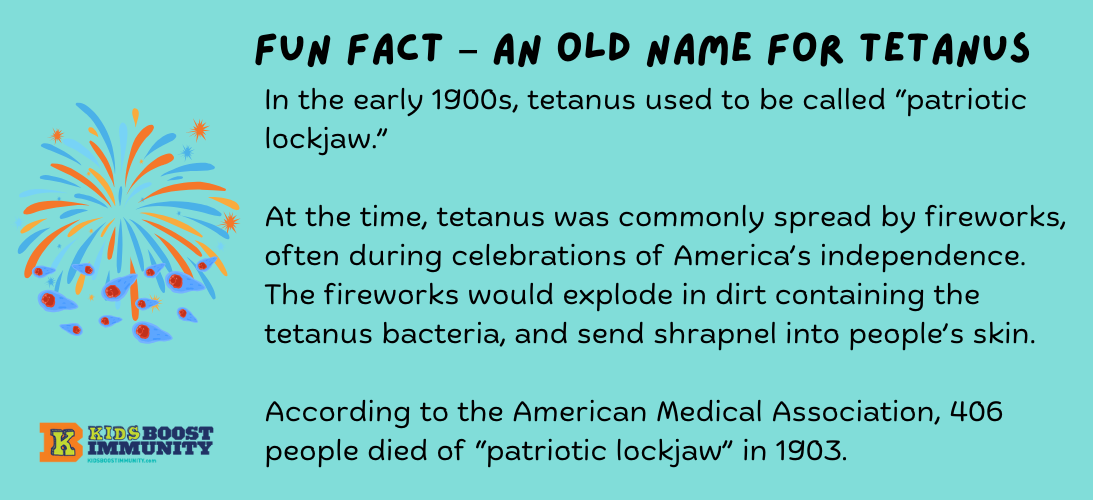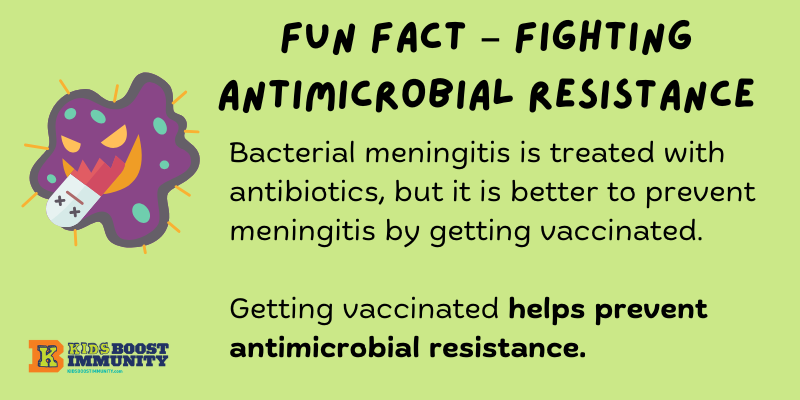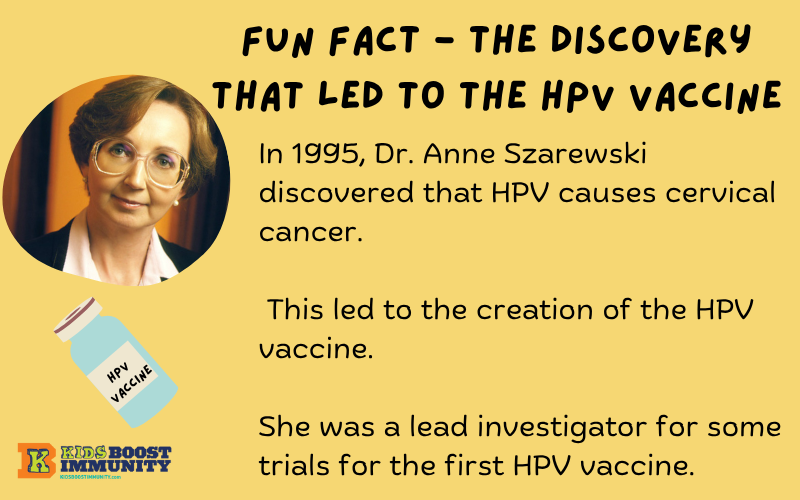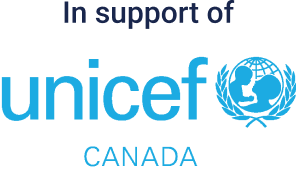How To Handle Your Vaccines Like a Champ (BC 9) - Part 3

![]() If you'd like someone to read this section for you, click play below.
If you'd like someone to read this section for you, click play below.
You will be offered the Tdap vaccine (tetanus, diphtheria and pertussis) and the meningococcal vaccine this year. If you have not received the HPV vaccine yet, you will also have the option to get the HPV vaccine. If you are missing other vaccines, you may be offered them too.
Tdap Vaccine
The Tdap vaccine protects against three diseases. Here are two great videos to choose from that explain what the Tdap vaccine protects against.
Cartoon-style video explaining the Tdap vaccine:
Lecture-style video explaining the Tdap vaccine:
![]() If you'd like someone to read this section for you, click play below.
If you'd like someone to read this section for you, click play below.
Now let’s review.
- What is tetanus?
-
Tetanus is caused by bacteria found in dirt, dust, and soil. It is different from other vaccine-preventable diseases because it doesn’t spread from person to person. A person usually gets tetanus when the bacteria enter the skin through a cut or scrape. When the bacteria enter the body they produce a toxin (a poison) that can cause painful tightening of muscles all over the body (muscle spasms). It is very serious if the breathing muscles are affected.
Up to 1 in 5 people who get tetanus may die.

- What is diphtheria?
-
Diphtheria is a serious infection of the nose and throat caused by diphtheria bacteria. The bacteria are spread through the air by people sneezing or coughing, and by direct skin-to-skin contact. The disease can result in very serious breathing problems. It can also cause heart failure and paralysis.
About 1 in 10 people who get diphtheria may die.
- What is pertussis?
-
Pertussis, also known as whooping cough, is a serious infection of the airways caused by pertussis bacteria. Pertussis can cause pneumonia, seizures, brain damage or death. These complications are seen most often in infants. The bacteria are easily spread by coughing, sneezing, or close face-to-face contact. Pertussis can cause severe coughing that often ends with a whooping sound before the next breath. This cough can last several months.
- Why do teens need the Tdap vaccine?
-
The Tdap vaccine given in Grade 9 is a booster dose. Most students got these vaccines when they were younger, but the protection can fade over time. Getting a booster in Grade 9 helps keep you protected against tetanus, diphtheria, and pertussis (also known as whooping cough). It also helps stop the spread of these diseases to others.
- Is the Tdap vaccine safe?
-
Yes. Vaccines are very safe. Doctors and scientists study vaccines very well to make sure they are safe.
The best way to make sure you don’t get sick with tetanus or spread diphtheria and pertussis to others is to get the Tdap vaccine. It is much safer to get the Tdap vaccine than to get any of these diseases.
If you have any questions about the Tdap vaccine, you can ask the public health nurse before or on vaccination day.
Meningococcal Quadrivalent Vaccine
The meningococcal vaccine protects against meningococcal infection, which can cause serious and life-threatening infections, including meningitis. Here’s a great video explaining meningococcal infection and the vaccine that protects against it.
Please note that the following video calls the meningococcal quadrivalent vaccine the meningitis vaccine.
![]() If you'd like someone to read this section for you, click play below.
If you'd like someone to read this section for you, click play below.
You may have heard scary stories in the news about teens who have died of meningitis. In this lesson, you will learn about meningococcal infection and how to protect yourself against it.
- What is meningococcal infection?
-
Meningococcal infection is caused by bacteria. This includes meningitis, an infection of the lining that surrounds the brain and spinal cord. Meningococcal infection can also cause septicemia, an infection of the blood. While meningococcal infection is rare, it can be serious and life-threatening. It can cause brain damage, deafness, loss of limbs and even death.
- How does meningococcal infection spread?
-
Meningococcal infection can spread from person to person by coughing, sneezing, or close face-to-face contact. It can also be spread through spit (saliva). This means that activities such as kissing or sharing of food, drinks, cigarettes, lipsticks and water bottles can also spread meningococcal bacteria. To be safe, it’s best not to share these items.
- Why do teens need the meningococcal quadrivalent vaccine?
-
The meningococcal vaccine protects you from serious infections like meningitis and blood infections caused by meningococcal bacteria. These infections can be life-threatening. Teens and young adults are at higher risk. Getting vaccinated helps protect you and the people around you.
The best way to make sure you don’t get sick with a meningococcal infection or spread it to others is to get one of the meningococcal vaccines.

- Is the meningococcal vaccine safe?
-
Yes. Vaccines are very safe. Doctors and scientists study vaccines very well to make sure they are safe.
It is much safer to get the meningococcal vaccines than get the disease. For every 100 people who get sick with a meningococcal infection, up to 15 will die, even if treated.
If you have any questions about the meningococcal vaccine, you can ask the public health nurse before or on vaccination day.
HPV Vaccine
The HPV vaccine is typically offered to students in Grade 6. However, students who have not received the HPV vaccine yet can get it in Grade 9.
- What is HPV?
-
HPV stands for human papillomavirus. It is the most common sexually transmitted infection in the world. About 3 out of 4 (or 75% of) unvaccinated sexually active people will get HPV at some point in their lives. Most of the time, HPV (human papillomavirus) doesn’t cause any problems and goes away on its own, but sometimes it doesn’t go away and can cause cancer over time. It can also cause genital warts.
- Why do preteens and teens need the HPV vaccine?
-
Preteens and teens need the HPV (human papillomavirus) vaccine to protect them from HPV infections that can cause cancer later in life. HPV can cause cervical cancer, other types of genital cancer, and cancer of the mouth and throat. The vaccine also protects against most genital warts.
- Is the HPV vaccine safe?
-
The HPV vaccine is very safe. Hundreds of millions of doses of the HPV (human papillomavirus) vaccine have been safely given worldwide.

If you have any questions about the HPV vaccine, you can ask the public health nurse before or on vaccination day.
END OF LESSON




